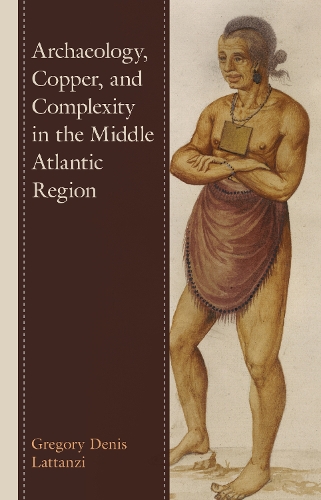
Archaeology, Copper, and Complexity in the Middle Atlantic Region
(Hardback)
Publishing Details
Archaeology, Copper, and Complexity in the Middle Atlantic Region
By (Author) Gregory Denis Lattanzi
Bloomsbury Publishing PLC
Lexington Books
14th January 2022
United States
Classifications
Professional and Scholarly
Non Fiction
History of the Americas
Anthropology
974.01
Physical Properties
Hardback
122
Width 161mm, Height 228mm, Spine 14mm
340g
Description
For the prehistoric people of the Middle Atlantic region, copper held a fascination higher than rank, achievement, or status. Native copper artifacts, along with other exotic objects, were seen as a conduit or connection between the living and the dead and were used in burial. Other studies have viewed the use of such artifacts in burials as indicative of an individuals status and rank, providing evidence for complex society. In Archaeology, Copper, and Complexity, Gregory Denis Lattanzi contends that such economic explanations should be rethought, arguing that the presence of highly exotic artifacts like copper beads and gorgets could be representative of the different mechanisms at play within prehistoric ideology, ceremonialism, and ritual.
Reviews
Archaeology, Copper, and Complexity continues to forward the concept of a Middle Atlantic archaeological region. This volume provides a comprehensive overview of copper as a mineral resource, highlights important source regions for studying socio-cultural interaction, reviews and tests various exchange and interaction theories and discusses the role of copper within mortuary ritual. Through these themes, Greg Lattanzi deconstructs the notion of 'complexity' as being intrinsically associated with social ranking and hierarchy, and proposes that cultural cohesion within the Middle Atlantic copper complex instead reflects an egalitarian sensibility. A must read for anyone interested in the archaeology, material culture, and ritual behaviors of Middle Atlantic pre-colonial cultures.
--Heather A. Wholey, West Chester UniversityAuthor Bio
Gregory Denis Lattanzi is curator of the bureau of archaeology & ethnography at the New Jersey State Museum in Trenton and a New Jersey state archaeologist.
